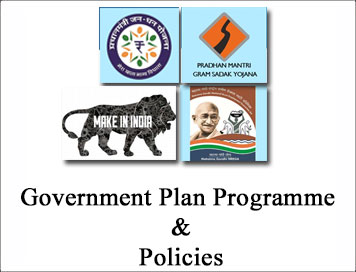If the period between the last quarter of 2016 and early 2017 was anything to go by, FIIs were quite bearish, both in debt and equity.
Between October 2016 and end-January 2017, FIIs were net sellers in the debt and equity segments at Rs. 48,406 crore and Rs. 31,903 crore, as per data from the National Securities Depository (NSDL).
There was some amount of profit booking in the equity segment on account of demonetisation as well, which is expected to dent corporate earnings over the next few quarters.
FIIs have been the prime drivers of every bull run in the Indian equity market. They have been attracted by the handsome returns and the robust regulatory and trading mechanisms of the country for long.
Data on foreign flows in the Indian equity and debt segments are available from 1992-93, and since then, they have invested Rs. 8.51 lakh crore in equities and Rs. 2.82 lakh crore in debt.
Interestingly, between 1992-93 and 2015-16, there have been only three financial years (1998-99, 2008-09, 2015-16) when FIIs ended the fiscal period as net sellers of equity. In the debt segment, they were net sellers on five occasions.
Going by the data for the past two months, it seems the outflows have stabilised for now. Data show that foreign investors have been net buyers of Indian debt at Rs. 17,630 crore in February and March.
In equities, they have been all the more bullish, putting in a cumulative amount of Rs. 30,863 crore in this period.
But a section of market analysts feels that it is too early to conclude that the trends have changed as the past two months have seen a reversal in flows across all emerging markets, not just India.
For instance, while India has seen inflows of $4.6 billion in the current calendar year, as per Bloomberg data, South Korea and Taiwan have also seen inflows in excess of $4 billion.
Further, Indonesia and Malaysia have seen inflows of $455 million and $961 million respectively.
There is a view that the flows started reversing by January-end on increasing expectations that growth in the U.S. would accelerate, which would have a ripple effect on the emerging markets too.
Historically, a strong growth acceleration in the developed markets has led to emerging markets being significant beneficiaries.
Based on parameters like price earnings and price to book returns, India looks about 40-50% higher than the regional average.
Finally, corporate earnings would also be an important factor to decide the course of foreign flows.
Currently, there is hardly a bullish view on earnings growth as many are expecting a hit from demonetisation and global economic momentum is yet to decisively strengthen.
Incidentally, the recent surge has entirely been due to liquidity as investors have been betting on equity on the back of a strong mandate for the ruling political party.
So, from an economic point of view, a combination of slightly cheaper valuations and consensus growth in earnings are the key to continued foreign flows.
National Security Adviser Ajit Doval and his U.S counterpart, H.R. McMaster, committed to work together to “combat the full spectrum terrorist threats”, a U.S administration official said after a meeting between the two.
The focus of Mr. Doval’s meetings was terrorism, but the security situation in India’s neighbourhood, including Afghanistan and maritime security issues in the Indian Ocean, were also discussed, Indian officials said.
Tensions in South China Sea also figured. The officials spoke on broad objectives and areas of common of interests between the two countries, and according to Indian assessment, there is continuity on all fronts of cooperation between the two countries.
India, meanwhile, has asked the U.S. to provide details of the 271 undocumented migrants Washington wants New Delhi to take back.
Earlier, ahead of the meeting with Mr. Doval, Mr. Mattis said that no relationship can stay static as it either declines or grows.
President Donald Trump faced the biggest blow yet to his young presidency as his bid to repeal Obamacare went down in flames at the hands of rebel Republican lawmakers.
Barely two months into his term, Mr. Trump was forced to withdraw an embattled Republican health care bill, moments before a vote, leaving his campaign pledge to dismantle his predecessor’s health care reforms unfulfilled.
The defeat showed the limits of Mr. Trump’s power to deliver on an ambitious legislative agenda despite Republican control of both houses of Congress.
On Mr. Trump’s agenda are a major overhaul of the tax system and a bill to upgrade infrastructure like roads and bridges.
Mr. Trump had thrown his full political weight behind the measure, spending days arm-twisting recalcitrant Republicans, and he declared himself “disappointed” by the defeat.
The bill’s defeat marked a second major policy setback for the new President, who has seen his attempt to curb travel from Muslim-majority countries twice frozen by the courts.



 What
is the Act all about?
What
is the Act all about?





